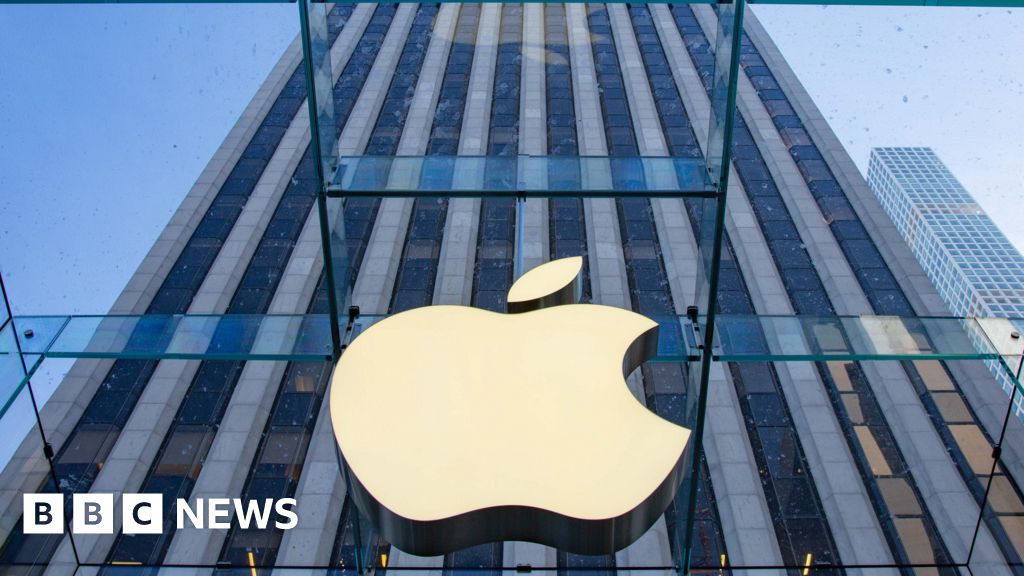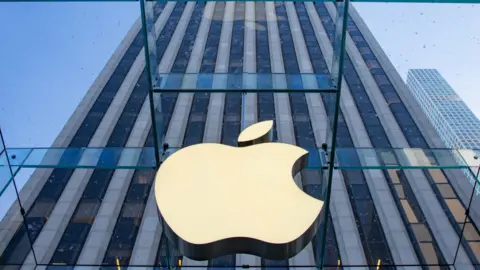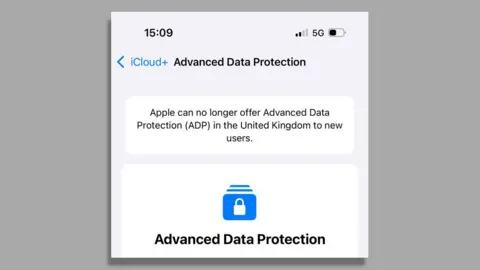

Getty Images
In an unprecedented move, Apple is set to disable its highest level of data security tool for users in the UK, following a government request for access to user information.
Advanced Data Protection (ADP) allows only account holders to access their photos and documents stored online through end-to-end encryption.
Recently, the UK government requested the ability to view this data, which is currently inaccessible even by Apple.
While Apple has not directly commented on this latest development, they have long opposed creating a “backdoor” in their encryption systems, asserting that such a move would eventually lead to vulnerabilities exploited by malicious actors.
As a result, Apple has announced that the activation of ADP will no longer be permitted in the UK.
This decision means that not all customer data stored on iCloud—Apple’s cloud storage service—will be fully encrypted for UK users.
Under standard encryption, Apple retains the ability to access data, which can be shared with law enforcement agencies if a warrant is obtained.
A statement from the Home Office noted, “We do not comment on operational matters, including for example confirming or denying the existence of any such notices.”
Apple expressed its “grave disappointment” about the loss of this vital security feature for its British customers.
They reiterated, “As we have stated before, we have never built a backdoor or master key for any of our products, and we never will.”
The ADP system operates on an opt-in basis, requiring users to enroll to benefit from its security features.
As of 1500 GMT on Friday, UK users trying to enable ADP have encountered an error message.

Apple
Existing users will lose access to the feature at a later time.
It remains uncertain how many individuals have activated ADP since its introduction to UK customers in December 2022.
Cybersecurity expert Professor Alan Woodward from Surrey University described the development as “extremely disappointing,” likening it to “an act of self-harm” by the government.
He stated, “The only thing the UK government has managed to do is undermine online security and privacy for users based in the UK.”
He further argued that it was naïve for the UK government to assume they could dictate the actions of a US technology firm on a global scale.
What Did the UK Government Request?
The request was issued by the Home Office under the Investigatory Powers Act (IPA), which mandates companies to provide data to law enforcement agencies.
Apple has not commented on the notice, and the Home Office declined to confirm or deny its existence. However, several sources familiar with the situation have spoken to the BBC and the Washington Post.
This request sparked significant backlash from privacy advocates, who labeled it an “unprecedented assault” on individuals’ private data.
Two senior US lawmakers stated that this posed such a serious threat to American national security that the US government should reevaluate its intelligence-sharing agreements with the UK unless it was retracted.
It is unclear whether Apple’s decision resolves these concerns, as the IPA order applies globally, and ADP will still function in other nations.
In its statement, Apple expressed regret over the measures it had to take.
“Improving the security of cloud storage via end-to-end encryption is more vital than ever,” they emphasized.
“Apple remains committed to providing users with the highest level of security for their personal information and hopes to do so in the future within the UK.”
This dispute arises amidst increasing resistance in the US toward regulations targeting its technology sector from abroad.
During a speech at the AI Action Summit in Paris in early February, US Vice President JD Vance indicated that the US has growing concerns regarding this trend.
“The Trump administration is alarmed by reports that some foreign governments are contemplating imposing stricter regulations on US tech companies that operate internationally,” he said.










